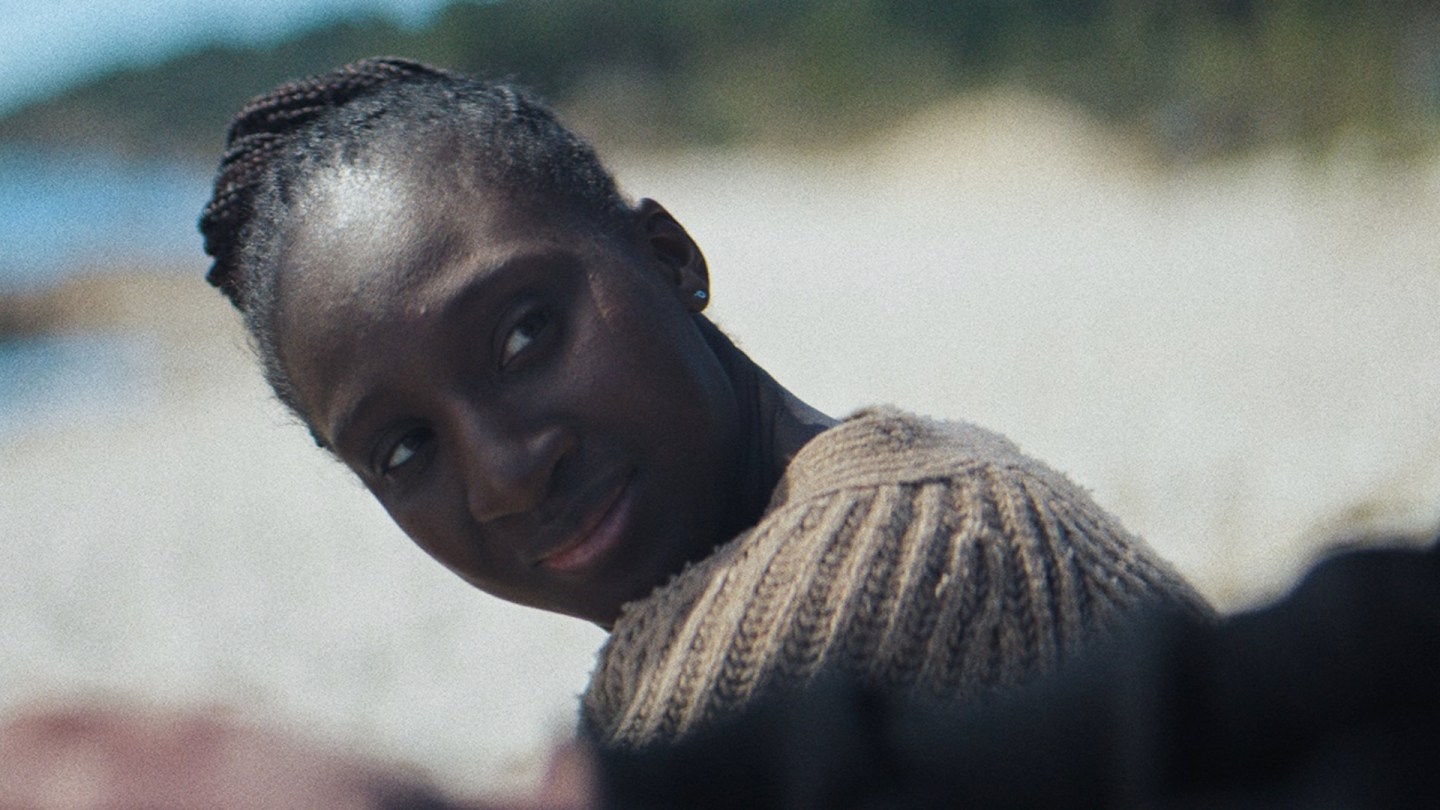According to Belgian director Joachim Lafosse, his latest, Six Days in Spring (Six jours ce printemps-là), was inspired by a memorable break from his own childhood in which he, his brother and their mother effectively squatted at the fancy second home owned by his father’s parents. The personal nature of that inspiration may explain the film’s wistful tenderness and low-key atmosphere.
Sure, this quiet drama is spiked by a certain amount of suspense over whether the family at its center will get caught. But the dramatic tension hums on a much mellower frequency compared to Lafosse’s usually higher-pitched families-in-crisis stories (see A Silence, Our Children, The Restless), making this practically a light comedy by his standards.
Six Days in Spring
The Bottom Line
An anxious, intimate, sun-dappled tale.
Venue: San Sebastian Film Festival (Competition)
Cast: Eye Haïdara, Jules Waring, Leonis Pinero Müller, Teodor Pinero Müller, Emmanuelle Devos, Damien Bonnard
Director: Joachim Lafosse
Screenwriters: Joachim Lafosse, Chloé Duponchelle, Paul Ismaël
1 hour 32 minutes
That shift in tone doesn’t entirely pay off. The elliptical storytelling in Lafosse’s script (written in collaboration with Chloé Duponchelle and Paul Ismaël) arguably holds back too much information, compelling the viewer to wonder why they should invest in the characters’ fates. At least the cast are likable enough to coax empathy — particularly lead Eye Haïdara, whose recently single mother, Sana, is struggling to give her pre-adolescent twins Raph and Tom (played, respectively, by real-life siblings Leonis Pinero Müller and Teodor Pinero Müller) a normal family vacay, just like they used to have.
But there is a price to be paid, even if the house itself is free. Her decision to take something that’s technically not hers erodes the trust between herself and her boys, especially once it comes out that Jules (Jules Waring), the boys’ former soccer coach, has come along as Sana’s secret lover.
When we first meet her, Sana is working two jobs, one in an office by day, followed by waitressing shifts at night. The fact that the kids get themselves ready for school in the morning and then sit quietly in the restaurant doing their homework may be a sign of how well Sana has raised them, even if they still have all the boisterous energy you expect from 10-year-olds.
After the trio pile into Sana’s Renault minivan for an Easter vacation, stopping to pick up Jules on the way, they find out that there won’t be enough room at his family’s house. They’ll have to stay in a hotel, which Jules offers to pay for. Too proud to accept his hospitality but also broke, Sana finally agrees to the kids’ suggestion that they stay at their grandparents’ place in St. Tropez. She knows they won’t be there, she has a key and she already knows all the PIN codes needed to gain access to the private estate. Where’s the harm?
Even so, once they arrive following an all-night drive, Sana is squirrelly about being spotted by the neighbors. Knowing her former father-in-law checks the meters, she insists they don’t use any electricity while there and only light fires in the hearth to stay warm instead of turning on the heating. The house’s swimming pool is a petri dish full of algae, so they visit the private beach accessible only to residents. But after one of the locals recognizes Sana and the boys, they stick to public beaches, while she flinches every time she sees someone who might know her.
During a phone call with her ex-husband, she tells him she and the children are in Lyons visiting a friend. The kids, bless their hearts, agree never to reveal to their dad where they’ve been. But soon, Sana’s insistence that they minimize the use of cellphones and instead spend their evenings playing card games with her and Jules starts to wear thin. In one of the film’s tautest sequences, they’re caught swimming in a neighbor’s pool by a caretaker (Damien Bonnard), and Sana must decide whether to pay off the man to keep his silence.
DP and regular Lafosse collaborator Jean-Francois Hensgens, shooting in CinemaScope, mostly keeps the camera up close and personal with the ensemble, creating a sense of claustrophobia even when the occasional wide shot or view over the balcony serves as a reminder of the spectacular local scenery. This posh enclave, lushly appointed with palm trees and expensive upholstery and welcoming only to the propertied class, is exactly the kind of place J. G. Ballard had in mind when he wrote his dystopian novel Super-Cannes. Sana could come there only when she was married to one of neighborhood’s scions, whom we never see.
It’s an interesting choice that we never learn whether the parents-in-law or ex-husband are Black like Sana and her sons. None of the neighbors they meet, including nosy Josiane (Lafosse regular Emmanuelle Devos), is ever so gauche as to mention race, and everyone nominally greets the family with warmth. Nevertheless, there’s a constant sense that no one ever forgets the differences in class at play here, even amongst the working-class people who live in the town year-round and service the wealthy.
But Lafosse doesn’t linger on the sociology of the situation and instead emphasizes how secrets and lies fray this fragile family’s cohesion. It’s only once everything is out in the open, and the worst has happened, that real joy can be experienced. Sunlight truly is the best disinfectant, in every sense.

